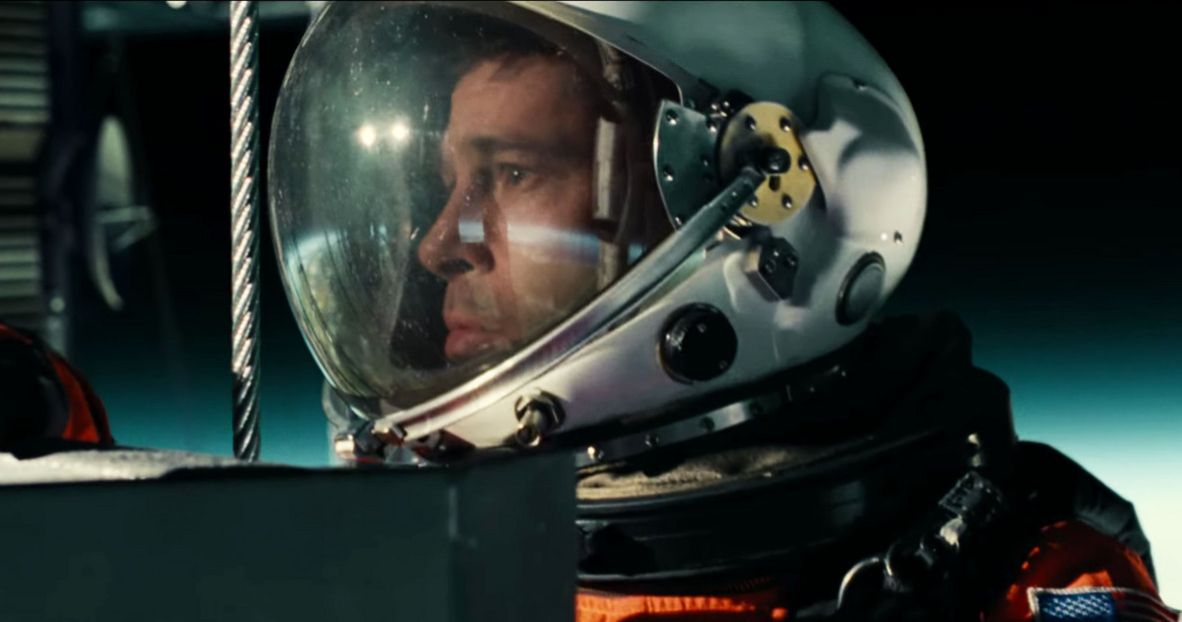Brad Pitt suffers an existential crisis during a space mission to save Earth. Ad Astra digs deep into the human psyche while exploring the vast reaches of the cosmos. The constant search for self becomes draining. Ad Astra's equivalent to two hours of interstellar therapy accompanied by mind-blowing visual effects. Thankfully the superb action scenes rescue the narrative from introspection overload.
Ad Astra opens "in the near future." Major Roy McBride (Brad Pitt) survives a catastrophic malfunction while repairing the International Space Station. During his recovery, he submits to daily psychological evaluations that test his fitness for duty. We learn that Major McBride is a superb astronaut, but struggles connecting to people around him. He is cold and distant with little regard for the feelings of others. Including his wife (Liv Tyler), who's through being shut out.
The government interrupts Major McBride's respite with a shocking revelation. His father, Clifford McBride (Tommy Lee Jones), the most venerated astronaut, disappeared on a mission to Neptune thirty years earlier. His ship, called the LIMA Project, was presumed lost with all crew members killed. Scientists believe the malfunction that crippled the space station originated from the LIMA's last known position. Clifford McBride is not only alive, but possibly a threat to humanity. Roy embarks on a top secret mission to discover his father's intentions. The journey forces him to reconcile long buried abandonment issues.
Ad Astra has a nearly constant voice over narration from Brad Pitt. We hear Major McBride's inner thoughts and feelings as he gets closer to finding his reclusive father. He is both the counselor and patient. The film juxtaposes the search for extraterrestrial life with what it means to be human. McBride chases a father whose interests were solely in the stars. He wonders if that blatant selfishness consumes him as well. McBride's self reflection odyssey goes from interesting to tedious quickly. I appreciate the film's philosophical tone, but it becomes labored. Director James Gray (We Own the Night, The Immigrant) and co-writer Ethan Gross get heavy handed in their approach to the protagonist.
Ad Astra is a technical marvel that will compete in every filmmaking awards category. The film's production design, cinematography, and special effects are truly magnificent. James Gray's vision of the future is exhilarating and terrifying. The grandeur and endless beauty of space does not escape its inherent dangers, or the evils of men. The body count gets surprisingly high on the trek to Neptune. McBride faces marauders on the moon, subterfuge on Mars, and a bloody encounter with a derelict spaceship, to name a few standout scenes.
Ad Astra is cerebral science fiction to a fault. It's a think piece that veers onerously into melodrama. That said, the adventure elements prop up the plot when Ad Astra languishes. The film looks and sounds amazing in every setting. I screened Ad Astra in an IMAX theater and was enthralled. It's worth paying for the premium experience. Ad Astra is produced by Regency and Plan B Entertainment with distribution from 20th Century Fox.

